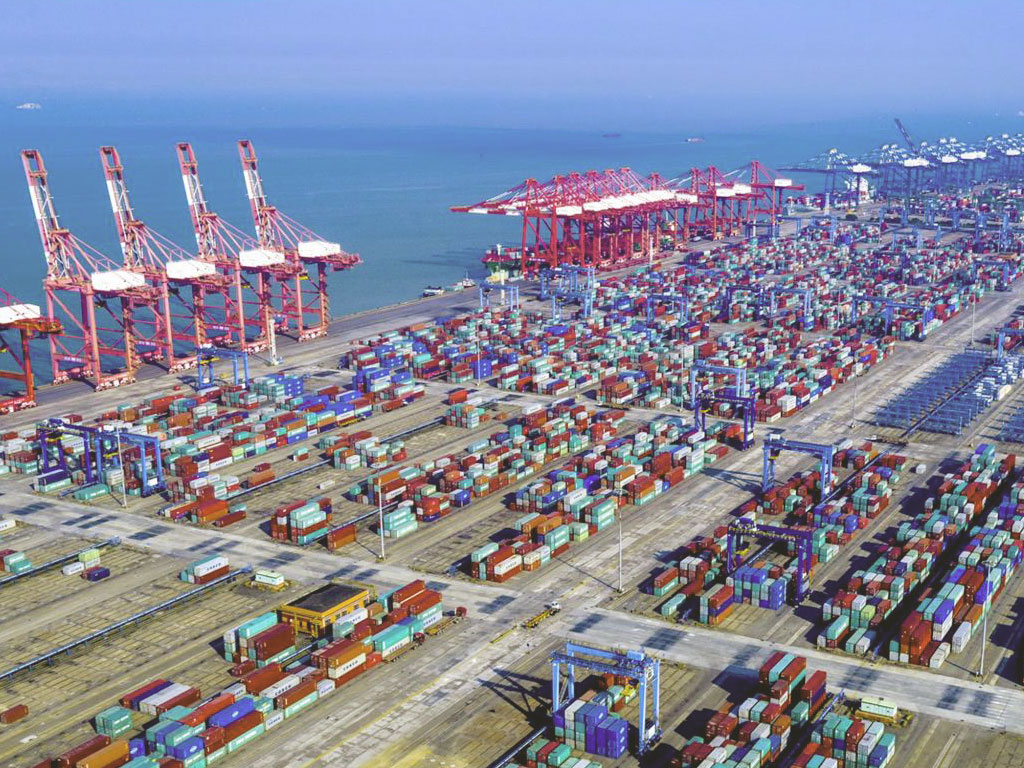SEKO Logistics issued a March 13th report stating that the spread of the Omicron virus was causing a shutdown at a number of Chinese ports and logistics operations stretching from Shenzhen to Shanghai.
Shenzhen & Hong Kong
Restrictions “are now in effect across all of Shenzhen. For the next week, no one will be allowed to leave their apartment complex except to do three rounds of Nucleic Acid Testing.”
For the following week, “all public transportation in Shenzhen (will) stop operating.”
All businesses in Shenzhen, including the SEKO office and warehouses “will be closed from 14-20th March unless essential services. SEKO staff will continue to work from home.”
The report added “We have not yet been advised of any official restrictions to Shenzhen Airport, however staff are unable to leave their homes to work at the airport.”
Trucks from outside Shenzhen are unable to enter the city.
Cross border shipments “from Shenzhen to Hong Kong will not move, unless they carry essential goods to Hong Kong.”

A March 13th Bloomberg report noted that:
”Apple Inc. supplier Foxconn is halting operations at its Shenzhen sites, one of which produces iPhones, in response to a government-imposed lockdown on the tech hub … The Taiwanese company, also known as Hon Hai Precision Industry Co., has its China headquarters in the area and a key manufacturing site in Guanlan. It is suspending operations at the two campuses and has reallocated production to other sites to reduce impact from the disruption, the company said in a statement. Foxconn didn’t specify the length of the suspension.”
The report went on to say that authorities had placed the 17.5 million residents of Shenzhen into lockdown for at least a week on Sunday, seeking to halt a growing Covid-19 outbreak. The lockdown, which came after virus cases doubled nationwide to nearly 3,400, will be accompanied by three rounds of citywide mass testing, according to a government notice.
Yantian
SEKO noted that the Yantian Free Trade Zone “will be closed from 14-20th March … No cargo will be able to load in Yantian from next week and vessels most likely will omit the port.”
As a result, Vespucci Maritime’s Lars Jensen noted in a March 14th LinkedIn post that shippers, terminals and forwarders should expect major delays in containers originating from the South China Port of Yantian: “All stakeholders now need to prepare for imminent Covid disruption of container cargo flows to and from Yantian.”
Jensen concluded: “It should be kept in mind that when Yantian was shut down due to Covid last year, the disruptive impact on cargo flows was roughly twice the size of the blockage of the Suez Canal.”
John L. Painter, CEO of Guangzhou Port America, said of the situation, “Unfortunately COVID is impacting some areas in China especially South China. Like last year, many shippers reacted quickly and diverted their shipments to the Port of Nansha which is located on the Western Side of the Pearl River Delta (Shenzhen is on the Eastern Side)this enabled shippers to keep their inventory moving to fulfil orders and easy backups at their factories.”
Shanghai
SEKO also reported: “As the outbreak in Shanghai continues to worsen, citizens have been encouraged not to leave the city unless necessary and must take a nucleic acid test to enter or leave.”
In addition:
Greater China
- Areas of Shanghai are being locked down but there is no full citywide lockdown implemented yet, however as the situation continues to worsen, this may come into effect in the coming weeks.
- All passenger flights into Shanghai have been diverted to other cities. Currently cargo aircraft has not been affected, however the diversion of passenger aircraft will have an impact on air freight rates.
Meanwhile, the ocean carrier Maersk, reported on March 14th that: “Trucking service for now is still available providing the drivers hold (a) negative Nucleic Acid Test (NAT) report. We foresee the overall trucking operational efficiency will be reduced significantly due to the frequent NATs, especially in Hong Kong, Shenzhen, West Pearl River Delta, Shanghai, Yangtze inland ports, Qingdao and Tianjin.”
The SEKO report concluded: ”The situation in Greater China is very fluid and we will be increasing our communication as it develops.”

